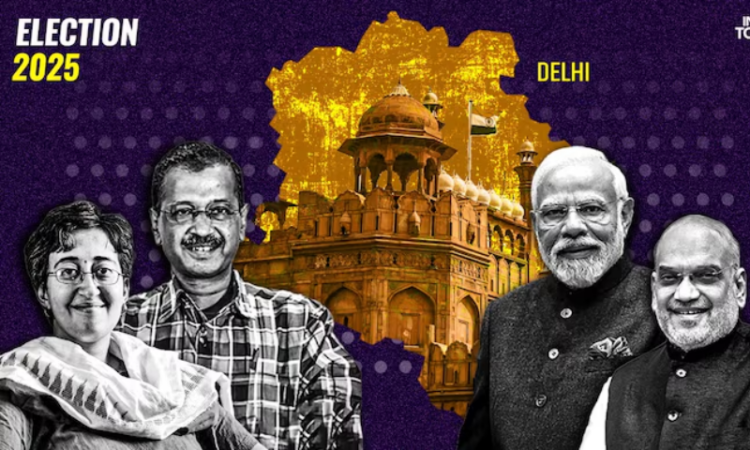New Delhi, February 8, 2025:Indian Prime Minister Narendra Modi’s Bharatiya Janata Party (BJP) has secured a resounding victory in the Delhi state election, reclaiming control of the capital after 27 years. The win offers a much-needed political boost for Modi following last year’s disappointing national election results.
According to the Election Commission of India, the BJP clinched 48 out of 70 seats in the Delhi assembly, a decisive victory over the opposition Aam Aadmi Party (AAP), which managed just 22 seats. AAP leader and outgoing Delhi Chief Minister Arvind Kejriwal, a longtime critic of Modi, not only saw his party’s dominance crumble but also lost the seat he contested.
Celebrating the victory, Modi pledged on social media platform X: “We guarantee that we will leave no stone unturned in developing Delhi and improving the quality of life for its people.”
AAP, which emerged from an anti-corruption movement in 2012, had governed Delhi for two consecutive terms since 2015. Kejriwal, 55, had been a key figure in the party’s success, championing welfare-driven policies like free water and electricity for the poor. However, his arrest on corruption charges ahead of last year’s national elections, which he claims was politically motivated, weakened AAP’s standing. The BJP, however, denies any allegations of a vendetta.
In the aftermath of the defeat, Kejriwal acknowledged the results and vowed that AAP would serve as a “constructive opposition,” having focused on infrastructure, education, and healthcare reforms during its decade in power.
To counter AAP’s populist measures, the BJP launched an extensive welfare-driven campaign, offering financial assistance to women, pension schemes for the elderly, and subsidies for essential services. These promises, coupled with Modi’s enduring appeal, helped the BJP secure the landslide win.
Despite losing its parliamentary majority last year, the BJP has continued to make gains in state elections, winning three out of the last four contests. These victories at the state level bolster the party’s influence in the upper house of parliament, which plays a pivotal role in legislative decision-making.








